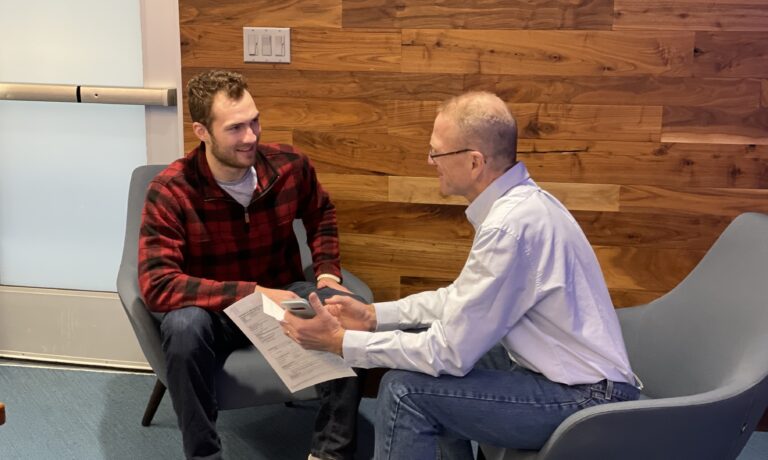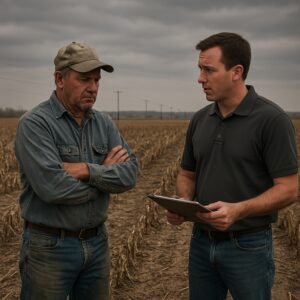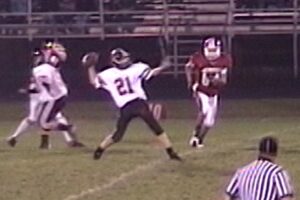Over the years, I’ve had the pleasure of training many salespeople in the skills and art of becoming an Ag Sales Professional. While it’s true that selling is selling, there are some specifics that help when you know the industry you are training in. For this week’s article, I started to think about how I might answer the following question – “What is the most important thing you can do to train your sales team to sell Ag retailers or farmers?”
Is it Prospecting? Maybe. This is certainly a critical skill for those that are just starting out and don’t have a big customer list yet. It’s also important for those in the Ag sectors that have high customer turnover (above 20%). Grain origination could fall into this category as customers can switch so easily from one elevator to the next.
Is it networking? Could be. The Ag world is a very small world. Once you break into a market segment, you realize that everyone mostly knows each other. And if they don’t, they will after their first trip to the coffee shop. So, being able to network, get referrals and have a good reputation in the community is critical.
Is it the ability to give a great sales “pitch”? I would say no. I would also say, quit pitching and start positioning your products or service to the customer’s need, but that’s a topic for another day.
Is it “Closing” skills? Could be. Closing is certainly right up there at the top as I have seen so many folks go all the way through a presentation and never actually close on the customer. A huge mistake that we can also talk about another day.
So, then what is the #1 tactic for better selling?
In my opinion, It’s the awful, horrible, dreaded “Role Play”
Now, I know the salespeople reading this aren’t going to like it and aren’t going to agree. Why? Because it feels weird, phony or kind of canned to role-play in a hotel lobby as guests are checking in and hotel workers are milling around. Even worse, if you stay in the conference room to do the role-play, then it gets noisy as the breakout groups all start their role-play or make phone calls or talk about the latest sports event instead of doing the break-out exercise.
Persist with it anyway!
The other reason the salesperson isn’t going to like it is – It shows right there in the light of day that they might not be using good sales practices. It’s one thing to listen to a lecture and answer questions with the right answers but it’s a whole other thing to practice those skills at full speed in a role play.
Persist with it anyway!
Here’s why:
#1. It’s the best way to really see if you can implement the training. You can sit and listen and agree. You can read and watch training videos. But, until you practice it and actually do it, you don’t have it ingrained in your skill set. I heard a great explanation the other day. It went like this. I can make you the smartest piano player in the world with instructional book after book. I can give you training videos on how to play the piano. You can listen to the great piano works by the greatest players. But, without actual practice, you will not be able to play the piano. I think this analogy fits the sales training we do perfectly. At some point, you take all that you know and you demonstrate that you can actually do it at full speed.
#2. You get a third-party view of your skills. What a great way to get feedback from someone who does the very job you do. It’s difficult to do self-assessments on actual sales calls. There’s a lot going on and you are juggling all the props, collateral, objections, and interruptions. So, it’s hard to think during all this chaos – “How am I doing on uncovering needs?” or “Did I ever actually ask for the sale?” Trust me, even the best forgets this step.
#3 You find out what your strengths are. Most of the time, we get done with role play and we do this mild sandwich feedback. Sandwich feedback means you say something Good – then something Bad (needs improvement) – then something Good. That way, you pump them up, then shred their ego and then send them off feeling like they might still be ok. The problem is that the good is either something small or non-specific and the bad is very specific, twice as long as the good and rips at their soul. Then the role player either gets angry, argues, or puts up a mental wall on any more feedback from that person. Read on for best practices to help avoid this.
#4 “Better here than in front of the customer!” Get all the easy mistakes fixed, learn some new techniques, get the bugs worked out and figure out your strengths in the process. It doesn’t cost you a penny to make mistakes in training. As a matter of fact, you’re probably getting paid to go to the training. However, if you make those same mistakes in front of a customer, it could cost you the sale-commission or maybe even the customer.
#5 Which of the two pictures above looks more engaging as either a participant or an instructor of training?
Best Practices
- Record it: Now, I’m really laying on the pressure. Don’t start out by recording it. After the sales team is comfortable with it, have them use their smartphone to record it. The feedback you have on yourself is phenomenal in improving your skills. You will be amazed after listening to yourself. Also, recording changes the way you role-play. It almost gives it that real-life feeling of being at a customer’s farm
- Make it real: Use real-life examples of role plays. By that, I mean you need to write up some typical scenarios. The trick is making them difficult enough that the role play can develop, but not so difficult that the process doesn’t get used.
- Along those same lines, this is not a technical or product exercise. I guess they could be but the important aspect is that you are practicing the soft skills: cold calling, uncovering needs, high-value questions, closing, etc. Try not to bog down in technical discussions. Save those for the hospitality sweet, where everyone is a genius.
- Get immediate feedback on the role play. This is tough for a trainer as they try to orchestrate all the activities of breakout groups. Give the exercise enough time in your agenda so that the teams can stop the role play and give feedback right away. Debrief the group after each role play to see if there’s anything to share and be learned for the whole group.
- To those playing the customer – Don’t be too hard or too soft on the salesperson. Don’t be a jerk. We know you know all the resistance lines that customers throw at you. Use a couple maybe but don’t just slam the person. Nor should you just roll over and go along too easily. Make them go through the process to get the answers from you or the commitment of a sale.
- To the observer, you can use the sandwich technique if you feel it’s better. However, try to pick out 2-3 key points for the salesperson to work on or that are strength points. Any more than that and they might feel somewhat overloaded. If they are truly not up to speed and need a lot of work on their skills, then maybe share that with them privately. The important point is this is a journey and we want them to make some steps forward each and every time they train.
If you are still skeptical of role-playing, then think of it as practice. Think about the top sports teams or any sports team. Think about the Falcons and Patriots at the Super Bowl. All those players spent years playing and practicing in high school, college, and pro seasons. They just completed the 16-regular game season and then several playoff games. What could they possibly do in practice that they haven’t done a million times before? Yet, even they still had practice and drills during the two weeks leading up to the big game.
To find out how I can work with you or your team, contact me directly at
For more on Ag Sales Training, Ag Sales Coaching, and Leading Ag Sales Teams, go to




